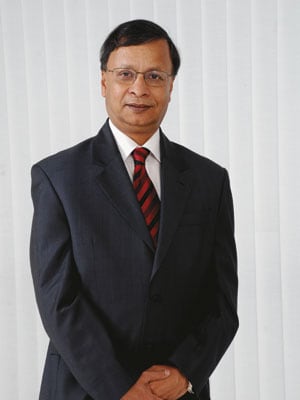
Biplab Majumder: I Wish It Had Been Better
ABB India had taken decisions that went wrong in the past but also had the resilience to bounce back, its outgoing head Biplab Majumder tells Forbes India
You are stepping down when the ABB Group in India is not doing well. Is that a regret?
It is and it isn’t. We always look for good results. But in a corporation of our size — today we are a couple of billion dollars — it’s not that everything is wrong. All our product businesses are going great guns. Some of them are growing at 30 percent. But we have a mix of 35 business units. So we are not worried about one or two quarters or some businesses giving problems.
I must be honest and say that had it been better, I would have been happy. But somewhere, some decisions have not been business friendly for us. We can only blame ourselves. We decided to go into certain businesses and then found that they were not remunerative for us. As we say in business, there is no miracle or magic. If it’s bad, just clean it up and move ahead. It will take a few quarters to clean up.
You are referring to the rural electrification business. What went wrong there?
You get a rural electrification project — which can make a 10 to 12 percent profit — but you have been given a geography of 200 square kilometres in the wilderness. We are supposed to put poles and connections for below-poverty-line homes. The first challenge I faced was fatalities of five to six people every year. Our group said, “We are not in the business of killing people. You better do something about it.” Each time a fatality happened I was summoned to Zurich. We tried very hard to prevent these and even opened a safety training centre. But then, the faces refreshed every seven days. I suggested that we exit the business, and the group management was understanding and supportive of my decision. This was not a business for us; we realised it the hard way.
You spearheaded ABB’s localisation initiatives, and set up over a dozen factories. Was it difficult to convince the headquarters?
It was a struggle. They said close down the factory in Faridabad due to its old style. I discussed it with the union and association, and we were convinced it will do well. So we spent $14 million on it. We didn’t add a single soul, but increased production by five times. Our decisions as managers are very important. If we carry on with the same methods, we will lose money and have challenges. But we modernised it and today, it’s one of the best facilities for ABB. The group has also invested more in India, which means that they have confidence in the management, expertise and facilities.
What advice are you giving to your successor?
There is no bottom line to costs. I tell the managers, if anybody thinks we have done enough to cut costs, then that is the end of the story. We should not be satisfied, [we need to] aggressively further reduce costs.
Watch out for the Koreans. They are better than the Japanese. Our costs are low, but our productivity is also low. The Koreans will produce quality goods. Their cost levels will also go up. But we can pull the cost down or keep it at the same level by improving the productivity. They will not be able to do that. But in the short term, they are a real threat.
(This story appears in the 30 November, -0001 issue of Forbes India. To visit our Archives, click here.)





